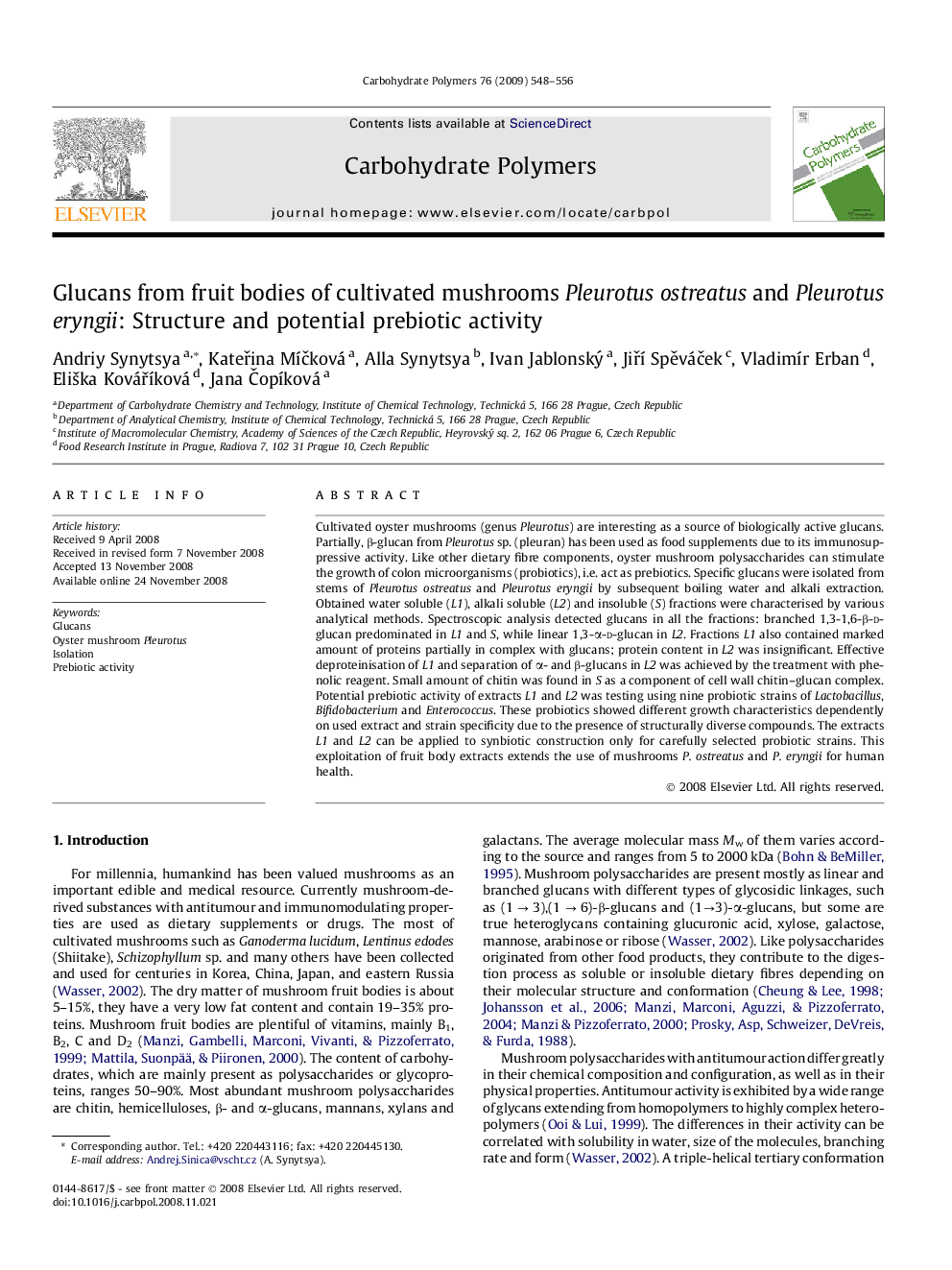| Article ID | Journal | Published Year | Pages | File Type |
|---|---|---|---|---|
| 1384666 | Carbohydrate Polymers | 2009 | 9 Pages |
Cultivated oyster mushrooms (genus Pleurotus) are interesting as a source of biologically active glucans. Partially, β-glucan from Pleurotus sp. (pleuran) has been used as food supplements due to its immunosuppressive activity. Like other dietary fibre components, oyster mushroom polysaccharides can stimulate the growth of colon microorganisms (probiotics), i.e. act as prebiotics. Specific glucans were isolated from stems of Pleurotus ostreatus and Pleurotus eryngii by subsequent boiling water and alkali extraction. Obtained water soluble (L1), alkali soluble (L2) and insoluble (S) fractions were characterised by various analytical methods. Spectroscopic analysis detected glucans in all the fractions: branched 1,3-1,6-β-d-glucan predominated in L1 and S, while linear 1,3-α-d-glucan in L2. Fractions L1 also contained marked amount of proteins partially in complex with glucans; protein content in L2 was insignificant. Effective deproteinisation of L1 and separation of α- and β-glucans in L2 was achieved by the treatment with phenolic reagent. Small amount of chitin was found in S as a component of cell wall chitin–glucan complex. Potential prebiotic activity of extracts L1 and L2 was testing using nine probiotic strains of Lactobacillus, Bifidobacterium and Enterococcus. These probiotics showed different growth characteristics dependently on used extract and strain specificity due to the presence of structurally diverse compounds. The extracts L1 and L2 can be applied to synbiotic construction only for carefully selected probiotic strains. This exploitation of fruit body extracts extends the use of mushrooms P. ostreatus and P. eryngii for human health.
